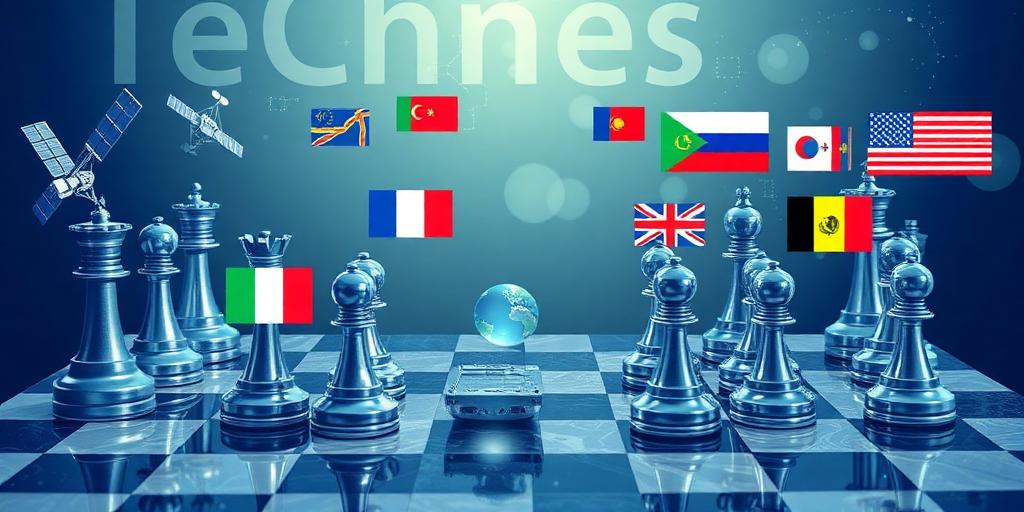The Geopolitical Chessboard: How Tech is Rewriting the Rules of Politics
In today's hyper-connected world, technology isn't just a tool; it's a geopolitical force reshaping the landscape of international relations. From election interference to digital espionage and the weaponization of social media, tech's influence on politics is profound and multifaceted.
The Rise of Digital Authoritarianism
Authoritarian regimes are increasingly leveraging technology to tighten their grip on power. Sophisticated surveillance systems, powered by AI and facial recognition, enable governments to monitor and control their citizens with unprecedented precision. Social media platforms are manipulated to spread propaganda, suppress dissent, and cultivate a cult of personality around the ruling elite. The Great Firewall of China serves as a prime example, demonstrating how a nation can erect digital borders to isolate its population from external information and maintain ideological purity.
Cyber Warfare: The New Battlefield
The internet has become a battleground where nations clash without firing a single shot. Cyberattacks can cripple critical infrastructure, steal sensitive data, and sow discord among populations. Russia's interference in the 2016 US presidential election exposed the vulnerability of democratic processes to foreign meddling. State-sponsored hackers target government agencies, businesses, and individuals to gain strategic advantages and undermine adversaries.
The Geopolitics of Data
Data is the new oil, and the control of data flows has become a major source of geopolitical tension. Companies like Google, Facebook, and Amazon wield immense power due to the vast amounts of data they collect and control. Governments are scrambling to regulate these tech giants and ensure that data is not used to compromise national security or undermine democratic values. The EU's General Data Protection Regulation (GDPR) is a landmark attempt to assert control over data and protect citizens' privacy rights.
Tech Alliances and Rivalries
The race to dominate key technologies, such as 5G, artificial intelligence, and quantum computing, is fueling geopolitical rivalries. The US and China are locked in a fierce competition for technological supremacy, with each nation seeking to establish itself as the global leader in innovation. Alliances are forming around shared technological interests, as countries seek to pool resources and expertise to compete more effectively.
The Future of Geopolitics in the Digital Age
As technology continues to evolve at a rapid pace, its geopolitical implications will only grow more complex and far-reaching. Governments, businesses, and individuals must adapt to this new reality by developing strategies to mitigate risks, harness opportunities, and promote a more secure and equitable digital world. International cooperation is essential to establish norms and regulations that govern the use of technology in a way that respects human rights, promotes peace, and fosters sustainable development.
Long-tail Keywords:
- geopolitical implications of technology
- tech influence on international relations
- cyber warfare and geopolitics
- data privacy and geopolitical tensions
- tech alliances and rivalries









